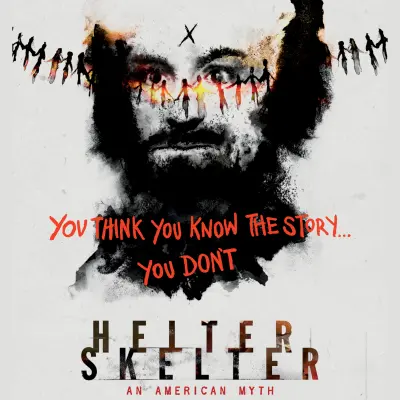Epix's Helter Skelter: An American Myth doesn't have much new to say about Charles Manson
-

"After decades of coverage devoted to the Manson family, anything new on the topic must clear a high bar," says Brian Lowry. 'Other than having time to flesh out the subject matter, the six-part Epix documentary Helter Skelter: An American Myth falls short of its promotional promise to 'upend what people think they know' and cast the story in 'an entirely new light.' At first blush, given comparisons between the current political climate and the tumult of the late 1960s, revisiting this period seems timely -- so much so that Epix actually postponed the planned June premiere by six weeks, as protests filled the streets. Aside from some newly unearthed material, though, and interviews with a number of Charles Manson's acolytes, the project mostly rehashes what's already known, while largely whiffing in its attempt to convey the lingering impact of the murders or explain the enduring fascination with them more than 50 years later."
ALSO:
- Helter Skelter director Lesley Chilcott's approach is much more frustrating and probably far more honest: "While admiring of (prosecutor Vincent) Bugliosi's proficient handling of the case, Chilcott more frequently presents Manson as a fame-hungry con man and if there's an answer for what Manson truly did or didn't believe, or what his followers did or didn't believe, it's elusive," says Daniel Fienberg. "Helter Skelter: An American Myth isn't quite distanced enough from the story to be exclusively an outsider commentary on what captivated people about Manson back then and why he continues to be a figure we analyze and deconstruct. At the same time, it isn't quite thoroughly embedded enough with the key figures in this world to reveal anything deeper from within. Or maybe there are no deeper truths and that's the thing that Helter Skelter: An American Myth is actually about? That Charles Manson and his Family were a product and consequence of a moment of general cultural upheaval, the tragic intersection of counterculture idealism and American fragmentation? The challenge, at times, is figuring out when Helter Skelter: An American Myth is intentionally accentuating the unknowability and mythologizing of Charles Manson and when those things are byproducts of questionable choices or limitations in the filmmaking."
- Helter Skelter is long on detail, short on insight: "Helter Skelter is full of detailed backstory and an impressively deep archive of vintage materials, everything from footage of Sharon Tate and Roman Polanski’s wedding reception to newspaper clippings jeeringly dubbing Manson’s mother Kathleen Maddox the 'Ketchup Bottle Bandit' after a failed stick-up," says Katie Rife. "This vintage footage adds visual interest and a sense of time and place to the story, with the side effect of making the production designer and casting director of Once Upon A Time...In Hollywood seem really good at their jobs. (Seriously, it’s eerie.) The series’ structure, however, is not as impressive."
TOPICS: Helter Skelter: An American Myth, Epix, Charles Manson, Lesley Chilcott, Documentaries
